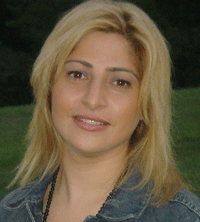Severe mental health issues are almost never at the forefront of conversation, but discussion in the Arab community is even more rare according to ACT Team Leader Amy Rahhall.

|
|
Amy Rahhall |
Called the “revolving door syndrome,” the flood of people with mental health issues drains the government of money.
That’s where the ACT comes in, armed with a variety of ways to help people from going down the wrong path.
“The program is designed to prevent clients from going back to the hospital, but the Middle Eastern community doesn’t know much about it or the kind of services we provide,” said Rahhal.
Those services provided by the ACT are numerous and free. From nurses to therapists and psychiatrists, the program works with patients to give them the emotional support they need to become productive citizens again.
They can visit patients in their homes or bring them to their office as well as pick up medication for home delivery.
In the event that a relapse occurs, ACT representatives are available 24/7 to assist in whatever way is necessary. Many other services close down after 5 p.m., and breakdowns after those hours have led to more costly hospital visits in the past.
Video conferences via webcam are also available and yet another of the creative ways patients can receive the support they need.
Another big part of the program is the series of free activities ACT provides for patients.
Rahhal talked about the types of activities ACT offers.
“We try to get them involved in the community by taking them to museums, one-dollar movie theatres, picnics, things like that,” she said.
“We like to involve them with affordable activities so when we refer them to their regular outpatients they’ll be able to follow up and keep up with activities.”
Keeping patients busy through fun activities is all part of ACT’s goal of helping out people who sometimes get left behind by the system.
Candidates for the program are those who are severely mentally ill and adults 18 and up. Applicants for help must have been in a mental hospital at some point and they have to have some sort of housing, whether by themselves or with a relative, because other programs are specifically designed to help the homeless.
Since ACT is run through the ACC, it features many bi-lingual workers of many different cultures who understand the specific cultural needs of the Arab and Muslim communities.
For more information on the ACT program, call 313.581.7287.






Leave a Reply